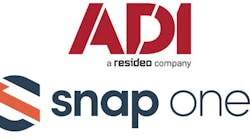Gains Made in Awareness & Knowledge; Seniors Show Major Improvements
WASHINGTON, Oct. 1 /PRNewswire-USNewswire/ -- The nation's RQ (Readiness Quotient) -- a barometer of the public's preparedness for a weather emergency, natural disaster or terrorist attack -- inched up nearly a point from 15 months ago, according to a report released today by the American Red Cross and the Council for Excellence in Government.
The nation's collective level of preparedness has increased to 4.14 out of a possible 10, compared to 3.31 in June 2006 . The survey found that the biggest gains were in the public's level of preparedness awareness, but more work needs to be done to engage people in taking preparedness actions.
Among the key findings:
-- Sixty-five percent of respondents said they know how to find the
emergency broadcasting channel on the radio
(up from 43 percent in 2006) and 62 percent said that their local
government had an emergency plan (up from 38 percent in 2006).
-- The majority of Americans remain unprepared. Only 4 percent have
taken all of the preparedness actions recommended in the RQ and
23 percent have not taken a single action.
-- Preparedness among seniors improved substantially, from an average
RQ score of 2.6 in 2006 to 4.0 in 2007, moving them out of the most
unprepared category. Despite the fact that preparedness levels
increased among those age 18 to 24 (2.7 in 2006 to 3.7 in 2007),
this group of young adults is now among the least prepared age group.
-- Businesses and schools play a role in helping to increase America's
preparedness level. People had a higher RQ if their employer had
an emergency response plan (4.5 compared to 3.1); and parents
were better prepared if their children's schools or daycare had
emergency response plans (4.5 compared to 2.8) and provided
written information about those plans (5.3 compared to 3.4).
"As the nation's partner in disaster preparedness and response, the American Red Cross is committed to helping individuals and families prepare for disasters and other emergencies in their homes, businesses and schools," said Mark W. Everson, President and CEO of the American Red Cross. "We want everyone, regardless of their age, background or geography to have the confidence and peace of mind that comes with being prepared. So we're asking that people Be Red Cross Ready by taking three simple actions: 1) get a kit, 2) make a plan and 3) be informed."
"We designed the RQ to be an easy way for individuals and communities to gauge their preparedness and to track progress over time. I am delighted to see the improvement in preparedness in the past 15 months . . . particularly in what Americans overall know regarding emergency readiness, as well as the impressive gains in preparedness by senior citizens in our country," said Patricia McGinnis, President and CEO of the Council for Excellence in Government. "But this year's RQ score has also identified preparedness gaps that we must address. Clearly, we have to move beyond raising awareness to taking action to prepare, particularly by our younger Americans."
The telephone survey was conducted during National Preparedness Month 2007, using the RQ survey questions found on the newly enhanced RQ website at www.WhatsYourRQ.org. The RQ survey provides a standard index for the nation as well as states, towns, and other groups. The RQ survey-tool is available for public use by individuals, families and groups to assess their actual level of preparedness. A new function of the RQ survey-tool allows individuals, as well as groups like businesses, schools, and localities to collect and retrieve preparedness data specific to their group, obtain a benchmark score that they can use to address gaps, plan education and training, and track progress over time.
After completing the 10-question online survey, users receive an instant RQ score. They are then provided with a variety of resources to help increase their RQ score and preparedness level, including an online education module, available at www.redcross.org/BeRedCrossReady, which walks visitors through three actions anyone can take to get prepared and Be Red Cross Ready for disasters and other emergencies: 1) get a kit, 2) make a plan and 3) be informed.
The RQ survey-tool can also help government officials, community service organizations like the American Red Cross, and other groups to identify areas of vulnerability within their communities and address these needs with tailored outreach programs.
Survey Methodology
Telephone survey of 1,005 U.S. adults 18 years and older on September 13-16, 2007, conducted by ORC International. Margin of error is +/- 3.1 percent at the 95% confidence level.
About The American Red Cross
The American Red Cross helps people prevent, prepare for and respond to emergencies. Last year, almost a million volunteers and 35,000 employees helped victims of almost 75,000 disasters; taught lifesaving skills to millions; and helped U.S. service members separated from their families stay connected. Almost 4 million people gave blood through the Red Cross, the largest supplier of blood and blood products in the United States . The American Red Cross is part of the International Red Cross and Red Crescent Movement. An average of 91 cents of every dollar the Red Cross spends is invested in humanitarian services and programs. The Red Cross is not a government agency; it relies on donations of time, money, and blood to do its work.
About The Council for Excellence in Government
The Council for Excellence in Government is a nonprofit and nonpartisan organization that works to promote improved government performance, citizen participation in government, and public-private partnerships. Since 2002 the Council has been a leader and catalyst in examining issues of homeland security and emergency management from the citizens' perspective by: conducting town hall meetings across the country that engaged people in a dialogue with local and national leaders about homeland security in a post-9/11 world, taken the pulse of the nation with provocative polling on a variety of preparedness issues, and regularly convening a forum for major metropolitan emergency managers.
SOURCE American Red Cross


